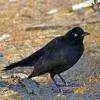-
Welcome to Celiac.com!
You have found your celiac tribe! Join us and ask questions in our forum, share your story, and connect with others.
-
Celiac.com Sponsor (A1):
Celiac.com Sponsor (A1-M):
-
Get Celiac.com Updates:Support Our Content
New Celiac And Hematuria
-
Get Celiac.com Updates:Support Celiac.com:
-
Celiac.com Sponsor (A17):
Celiac.com Sponsor (A17):
Celiac.com Sponsors (A17-M):
-
Recent Activity
-
- lil-oly replied to Jmartes71's topic in Celiac Disease Pre-Diagnosis, Testing & Symptoms1
Gluten tester
Hey there, have you been tested for allergies? You may not only have celiac disease but be allergic. I have celiac disease and am allergic to Barley, wheat and rye. -
- JudyLou replied to JudyLou's topic in Celiac Disease Pre-Diagnosis, Testing & Symptoms11
-
- knitty kitty replied to JudyLou's topic in Celiac Disease Pre-Diagnosis, Testing & Symptoms11
Seeking advice on potential gluten challenge
I have osteopenia and have cracked three vertebrae. Niacin is connected to osteoporosis! Do talk to your nutritionist and doctor about supplementing with B vitamins. Blood tests don't reveal the amount of vitamins stored inside cells. The blood is a transportation system and can reflect vitamins absorbed from food eaten in the previous twenty-four... -
- JudyLou replied to JudyLou's topic in Celiac Disease Pre-Diagnosis, Testing & Symptoms11
Seeking advice on potential gluten challenge
Thank you so much for the clarification! Yes to these questions: Have you consulted dietician? Have you been checked for nutritional deficiencies? Osteoporosis? Thyroid? Anemia? Do you take any supplements, or vitamins? I’m within healthy range for nutritional tests, thyroid and am not anemic. I do have osteopenia. I don’t take any medications, and the...




Recommended Posts
Archived
This topic is now archived and is closed to further replies.